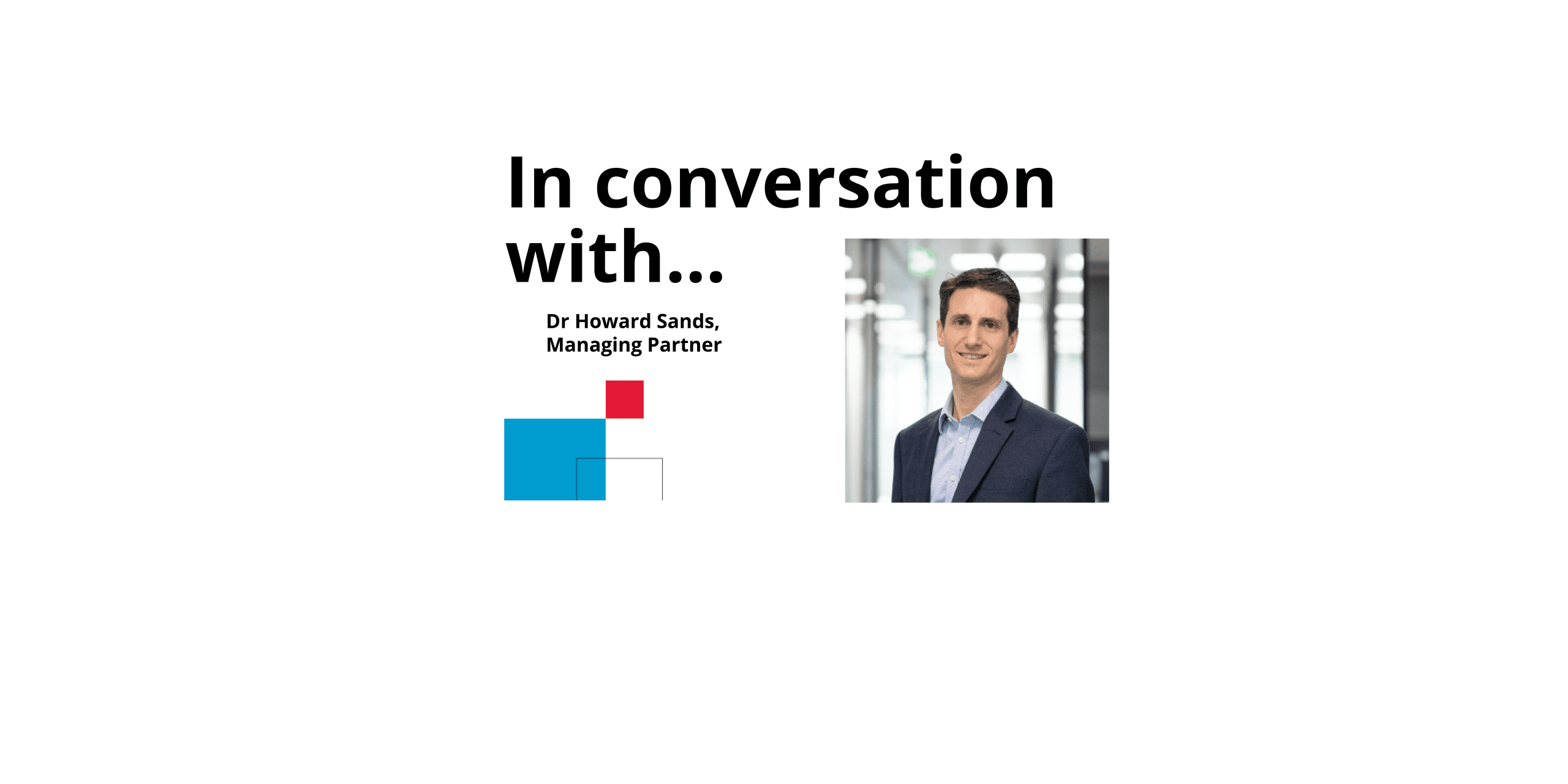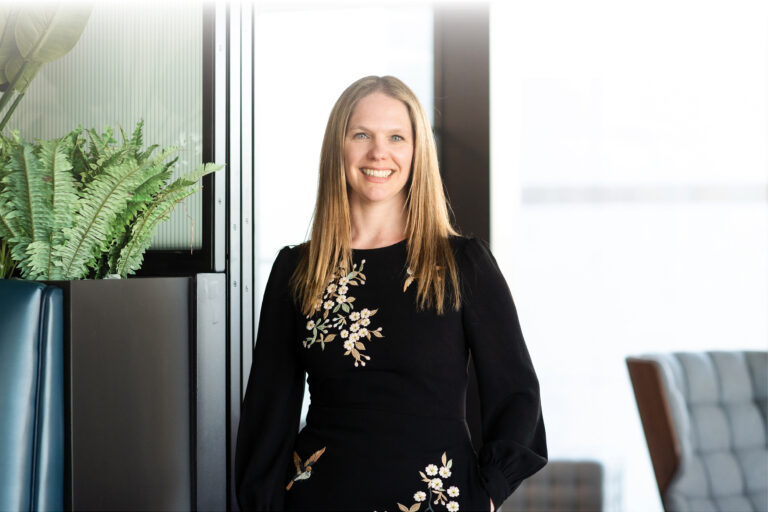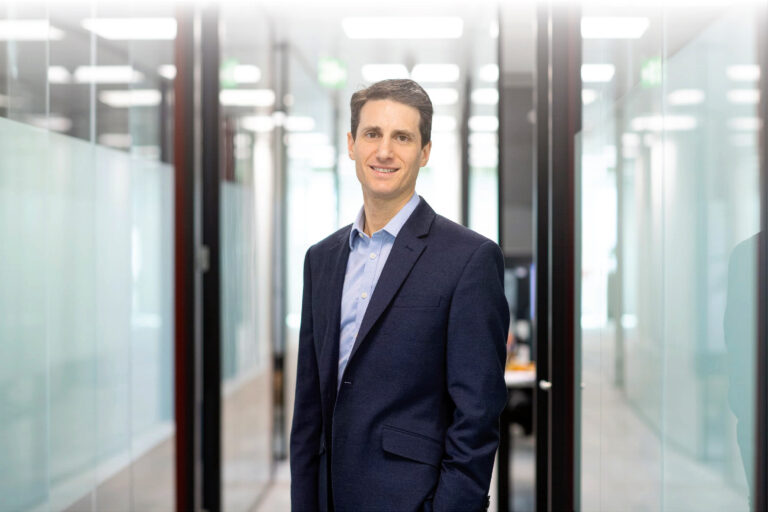MP: Howard, thank you for taking the time to talk to me. By way of brief introduction, Howard Sands is a Partner in Boult’s Patents team. His work mainly relates to software and business method patents, including telecommunications, scientific instruments, and financial services, where many inventions are computer-implemented. Howard has also recently taken over as Managing Partner at Boult, so I must remember to be especially nice to him!
HS: That does sound like a good perk!
MP: Congratulations Howard on recently becoming Managing Partner at Boult. What are you most looking forward to about this role?
HS: Well, I now have a larger office, but that is for hosting more meetings.
MP: People being particularly friendly towards you?
HS: Of course, but people are always friendly at Boult.
I’m really looking forward to learning more about the business and helping to guide the firm from a strategic point of view. I’m also excited to work more closely with colleagues outside of my direct group.
MP: It’s interesting to note for those people considering entering the patent profession that your role changes as you develop throughout your career. You stepping into a management role at the firm is an example of that.
HS: Yes – you’re right, it does change. There are distinct stages to a career as a patent or trade mark attorney. While you are training, you are busy learning lots of new legal concepts and taking exams. It’s a period of intense learning. Once you are qualified, you will be building your own client base, which involves meeting a lot of new people and working directly with individuals and companies. You will need to consider the needs and requirements of clients, understanding what makes their business tick and how you can help them to succeed. Becoming a partner in a private practice firm will mean training others and perhaps build your own group. This is where you really test your knowledge. This may also lead to more involvement with guiding the day-to-day activities of the firm, taking responsibility for particular functions and business development, and being asked to contribute to significant firm-wide decisions, like opening new offices and expanding into other countries, for example.
At this stage [as Managing Partner], I’ll be the person proposing these sorts of questions and potentially providing a lead on the firm’s wider strategy, which is exciting. As the world, the economy and technology continue to change, Boult needs to be able to react swiftly. We have to be adaptable and deal with these challenges and opportunities. That evolution is exciting.
MP: You sound optimistic, which is good!
HS: I am!
MP: What skillset do you think has made you a successful patent attorney?
HS: To be a good patent attorney you obviously need a strong academic background and to be good at assimilating lots of technical information. However, fundamentally you need to be curious about how things work and what really happens during complex processes. Do you really want to know how your mobile phone provides data services when you are travelling at speed on train between cell towers or how the ions in a mass spectrometer are trapped and analysed? Growing up I used to run magnets over my television screen (it leaves a purple dot on the family’s TV). I also learnt to solder, built electronic devices, and took apart a microwave oven.
MP: …perhaps don’t do that at home…!
HS: …right! But if you’re someone who wants to know how things work – which could mean chemically, the application of physics, or the workings of household products – then this role is an ideal fit. I must stress that we usually work with text and drawings and rarely enter a laboratory, but I got that out of my system as a PhD student. As a patent attorney, you also need to be able to interact with inventors, to get to the heart of their invention.
That curiosity is, I think, also transferable into management roles. I will be asking, why do we work in a particular way, why do our processes function the way that they do, and ultimately, can we do them better? Increasingly, we will need to consider the use of AI and how this can help us to work in an improved way. AI or other technology should help us react more effectively to our clients’ needs.
MP: Speaking of AI… What challenges or opportunities do you think AI presents?
HS: AI is relevant to Boult on various levels and is having a considerable impact on intellectual property. We see lots of inventors coming to us with ideas of how to use AI to do exciting new things. We regularly work on protecting innovations and crafting patent applications to cover AI implemented inventions. We have developed our own skills to capture these new complex functions accurately, while navigating new examination practices at various patent offices, so that we can secure the best possible protection for our clients.
As with the rest of the economy, there is the promise that AI can allow us to work more effectively but our profession has unique challenges, especially relating to confidentiality. This shouldn’t hold us back but with any new technology , we need to ensure that it is adopted carefully to support our clients, our people and our business. Moving to a largely paperless environment has had great benefits and I would like to see how AI can help us even more.
MP: Taking us back to the very start of your career: what’s some advice you would have for incoming trainees?
HS: Choose the right firm to train you! It is the number one most important decision you make at the start of your career. You will want to get through your training in the least painful and most enjoyable way possible. Having a firm that provides great tutorials and training will help you progress through your exams as quickly and efficiently as you can. Of course, Boult is a top training firm, with consistently excellent results. There is no substitute for hands-on client experience and with working alongside partners throughout your training. We provide a brilliant foundation for your later career.
MP: I found people were – and still are – very generous with their time at our firm.
HS: Absolutely. There’s always someone here to help with training at our firm. We regularly run tutorials and support sessions as part of our training programme. We take in a new training cohort annually, so there is always someone a few years above the current intake with recent relevant experience and who can provide useful advice. This advice can include where to obtain the right online materials, which courses to attend and when to sit exams. Having a strong supportive environment is very important when you are starting out.
MP: And our training team has been bolstered recently with the arrival of our Early Careers and Development Manager, who provides dedicated support for those training with us…
HS: Exactly. It really is a great place to train.
MP: What’s your favourite part of your role?
HS: For me it is about getting commercially useful patents granted for my clients. This can be a long and drawn-out process but navigating a difficult case to a successful conclusion is very satisfying. It is too early for me to express an opinion regarding my new management role.
MP: Working with your lovely colleagues?
HS: Ha! Of course.
It is also talking to inventors. Getting to see their incredibly clever inventions that they may have been working on for months or years, and finding out how they’re going to improve a process, push technology forward, and ultimately help people.
I thoroughly enjoy getting to see new technology in detail and before anyone else. Even if that technology is buried in a phone, or hidden in a telecommunications base station that not many people will even see, it’s still fascinating to see what goes on and how the technological world constantly improves. The inventors behind the patents that we work on are always passionate and fascinating to talk to.
From a personal point of view, when a new phone or piece of technology is released, I am proud that I played a small role in making that happen. It is great to see a product or new technology that you viewed at an early stage enter the market and be used by millions of people.
I can bore you with all the technical details another time!
MP: I’ll certainly be wondering more about the tech in my new phones in the future. Thanks Howard for taking the time to speak to me.
If you would like to read more about Howard and his practice, his profile can be found here and you can contact Howard at hsands@boult.com. Howard has co-authored: Specialist chapter: Overcoming patentability challenges for computer-implemented inventions at the EPO – IAM We’ll return soon with another of our “In conversation with…” series



